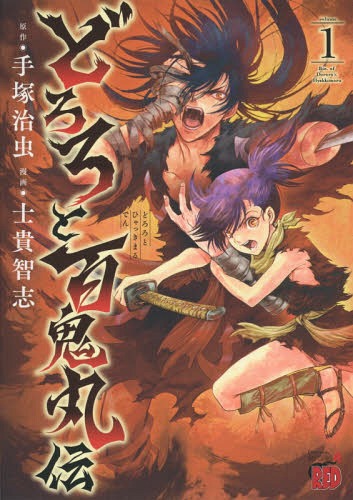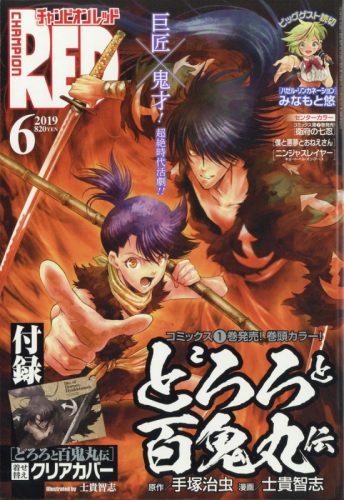
- Mangaka : Tezuka, Osamu (Story) and Shiki, Satoshi (Story & Art)
- Publisher : Seven Seas Entertainment
- Genre : Action, Demons, Historical, Samurai, Supernatural, Seinen
- Published : July 2020 - Ongoing
Dororo to Hyakkimaru Den (The Legend of Dororo and Hyakkimaru) Introduction (No
Spoilers)
A young swordsman, Hyakkimaru, travels alone through war-torn Japan, hunting demons
wherever they are. Along the journey, he crosses paths with Dororo, an orphan who steals to
survive. Dororo wonders why this demon hunter has a cold skin and blades hidden inside his
arms.
Contains Spoilers
Discussion Time
Just going to point it out right now: war sucks. It is a waste of resources, time, and lives and loses more than what both parties can gain. This manga shows what it feels like to live and travel through Japan in a post-war setting. Poverty, economy, power, morale, and more. Most importantly, a journey of a badass demon hunter, a petty thief, and a mysterious, wise monk.
1. Despair
If you thought that everything is going to be fine after the war, it’s not. There will be a rise of bandits and criminals to make matters worse for the innocent villagers. It begins with poverty then crimes then chaos. In terms of recovery from all the war, the economy, and the safety and wellbeing of the villagers, it will take some time.
These kinds of situations will lead to greed or any other ill intentions against other people, which they will attract demons. The concept behind the demons in this manner is pretty accurate: they love to feed intentions such as those and possess people and take over them completely.
2. Personalities
Our first impression toward Hyakkimaru, the demon hunter, shows hatred and the focus on hunting demons suits his character and objective. He also disregards the lives of other human beings. It is badass but still causes some trouble to a certain extent.
He gives a cold front but deep down he begins to develop a sense of humanity because of a Dororo, a petty thief. We don’t know what sparks that kind of development, but we guess it will be explained in the later volumes. From that point on, he knows when to listen and make rational decisions for the best of everyone, even if they will be seen as outsiders in a bad way.
Dororo is quite annoying around the first half of the volume because he aims to be the best thief. But meeting Hyakkimaru, including witnessing the war, changes his perspective toward others and grows from there and becomes more of a decent person to help others.
It is enjoyable but questionable when it comes to having a monk who is covered in mysterious vibes. He is reliable at most times, but it could have been easier if Hyakkimaru and Dororo know about them first-hand. Although, going for that approach doesn’t sound fun so why not?
3. Fighting Style
If you don’t have hands to grab a sword and fight, why not just integrate them into your arms, safe and clean, please. It is interesting to see a different fighting style in the manga which is integrated arm blades. The manga also shows how a person under such conditions made use of the surroundings to their advantage to fight against a demon.
4. Artwork
The story is made by the same original author who made Dororo in the 1960s, but this time, Shiki Satoshi assisted with both story and art. The backgrounds and characters feel so hard- boiled which aligns with the world settings. There are some pages where he implements the classic art style from Dororo as a sign of respect toward the original series and the mangaka, Tezuka Osamu.
The artwork is extremely detail, with the shadings, to a point wherein the battle scenes, you have to see and appreciate every part of them to know their actions such as which part of the demon got sliced. Did Hyakkimaru launch a shockwave attack of his own or a physical slash?
Final Thoughts

It is good to see and read a remastered version of Dororo during this age of time, turning classics into a modern version of the manga. And wow, they did a good job on the art and allows us to immerse into their world. We’re talking about demons, poverty, and how they make decisions when it comes to battles and interacting and help villagers. The combination of personalities for the trio seems weird but yet, interesting and things may work out in the long run.
It is enjoyable to read modernize classic manga series and new readers may like this series if they are not interested in the previous version. But if you do want to support the mangaka, you can try their original series, Dororo, as well. What is your favorite scene in this manga? Let us know in the comments below.

